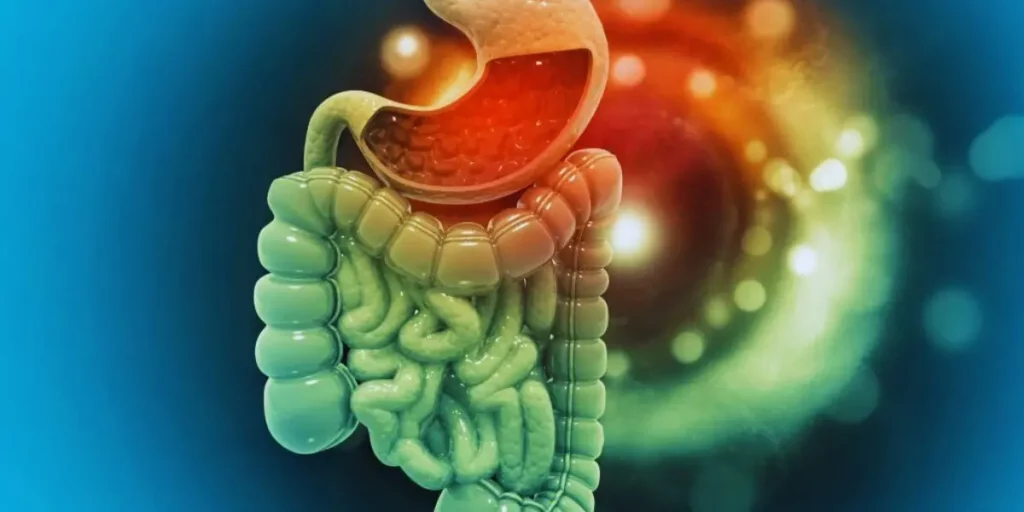Intestines are the most important part of your body when it comes to digestion, absorption of essential nutrients and supplying them to cells in the overall body. When you get an upset stomach or pain, your digestion, as well as your health, depletes.
Maintaining the health of your intestines is very important for the proper function of other parts of your body. When you get a swollen intestine, there are many complications that you are going to face, but before knowing the treatments, you must know about the symptoms and reasons for the swelling.
How Does Swelling In the Intestine Happen?
When you are suffering from a swollen intestine, there are many reasons for this condition. When measuring the pain and digestion process, you can get a rough idea about the swelling region, but you must get in touch with a doctor immediately. The reasons that cause swelling in the intestines are:

- Inflammatory Bowel Diseases(IBDs) like Crohn’s disease, ulcerative colitis, or microscopic colitis.
- Incorrect immune system’s response to triggers like viruses or bacteria.
- Getting this condition can be inherited or genetic. A family history of IBD can cause this life-long problem.
Symptoms
When looking for treatment for swelling in your intestine, you must have an idea about your symptoms and the regions that are affected. Intestines are very sensitive body parts when it comes to intruders, like viruses and bacteria, so immune systems function to get rid of those intruders. Here are some symptoms that will give you an idea about the severity of your condition.
Frequent arrivals of diarrhoea, without any specific reason, can be a sign of swelling in our intestines. Diarrhoea is the supportive reaction of the intestine, which works in order to prevent more infection.
Check for any mucus or blood in your stool. If there is blood there, there is a hard chance that you have an IBD. There are usual small swellings in the intestine, which gets repaired on its own, but if you are getting blood in your stool, your condition could be severe. Consult a doctor immediately.
Abdominal pain is normal in our day-to-day life due to our diet or lifestyle. When it comes to intense pain in your abdomen, it’s not normal. Check for a certain area in your lower abdomen for pain; if it gets worse with touching, that’s a strong sign of swelling in your intestine.
Find More Information: Do Antibiotics Reduce Immunity? Impact Of Antibiotics On Immunity
Treatment To Cure Swelling
When it comes to treatments or remedies for your swollen intestine, there is no necessary relief you are getting from simple home remedies. You are going to need professional or medical attention and get prescribed medications to get permanent relief from this condition. Here are the medications and treatments that can loosen your intestine’s swelling. Have a look:
Immunomodulators might sound peculiar to some, but these are medications that are commonly prescribed by doctors to patients suffering from IBDs. Swelling in the intestine comes in those IBDs as well. Immunomodulators like Azathioprine and methotrexate are some of those immunomodulators that are worth taking to reduce the effects.
Anti-inflammatory medications are some of the lighter medicines for the reduction of swelling of your intestines. When a doctor prescribes this type of medication, its work is to reduce the swelling and stop future remissions completely. Mesalamine and Sulphasalazine are some of the anti-inflammatory medications generally prescribed for the condition.
When there is less pain and suffering in your abdomen, and it seems like it will get better soon, then there might be mild swelling in your intestine. It can be treated with the help of some over-the-counter medications like:
- Anti-diarrheal drugs
- Non-steroidal anti-inflammatory drugs
- Vitamins
- probiotics
Will These Treatments Work For Swelling Of Intestine?
The answer is yes, IBDs like swollen intestines are treatable and can be prevented with proper diet and a healthy lifestyle. If your IBD is hereditary or genetic, then there is nothing you can do to prevent this, but it can be treated with all the above treatments. These treatments are well-researched and proven by doctors and specialists in this field.
Find More Information: IBS Gas Relief – How To Relieve From Bloating?